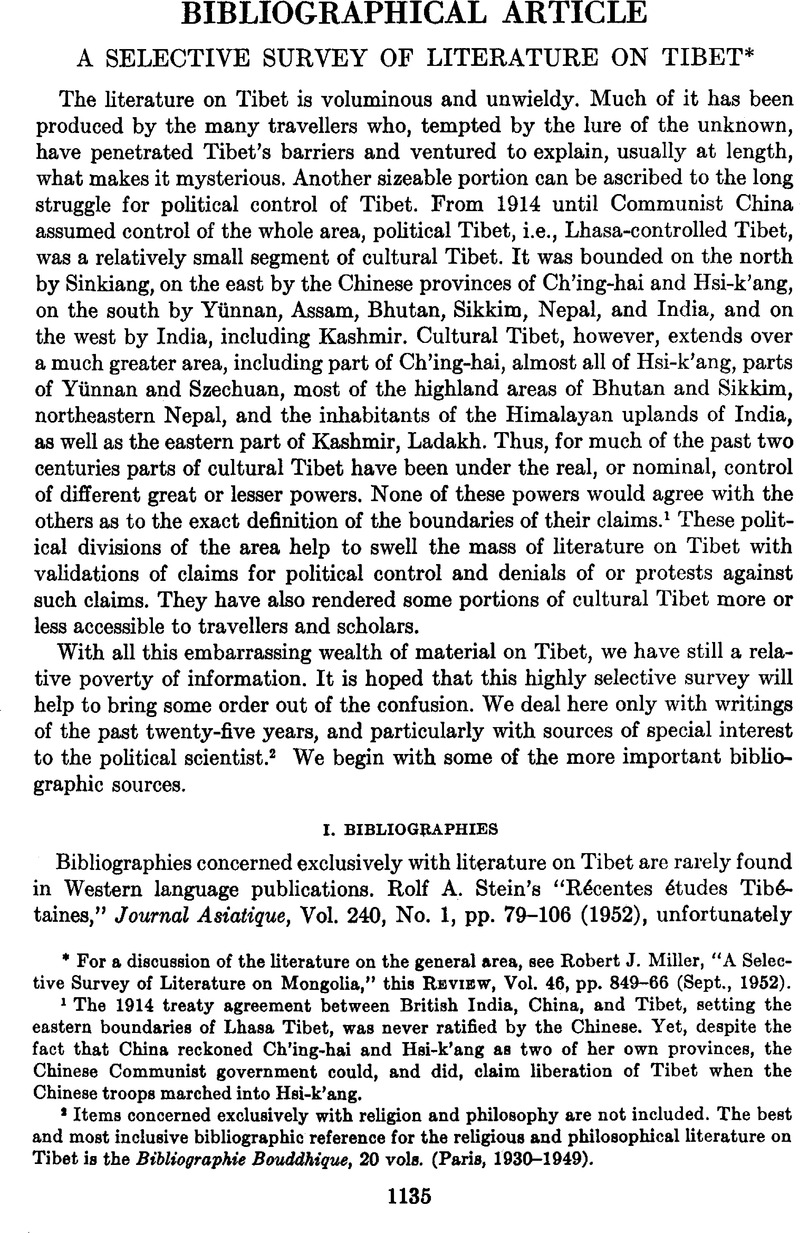Published online by Cambridge University Press: 02 September 2013

1 The 1914 treaty agreement between British India, China, and Tibet, setting the eastern boundaries of Lhasa Tibet, was never ratified by the Chinese. Yet, despite the fact that China reckoned Ch'ing-hai and Hsi-k'ang as two of her own provinces, the Chinese Communist government could, and did, claim liberation of Tibet when the Chinese troops marched into Hsi-k'ang.
2 Items concerned exclusively with religion and philosophy are not included. The best and most inclusive bibliographic reference for the religious and philosophical literature on Tibet is the Bibliographic Bouddhique, 20 vols. (Paris, 1930–1949)Google Scholar.
3 The late Panchen Erdeni disavowed the claims made on his behalf, in a letter to Basil Crump. See Journal of the Royal Central Asian Society, Vol. 23, p. 720 (1936)CrossRefGoogle Scholar.
4 See his Chinese Agent in Mongolia (Baltimore, 1949), translated by Francis, John deGoogle Scholar.
5 This author is preparing an article revealing the details of the plagiarism.
6 Father Desideri's Account presents his eyewitness version of the occurrences surrounding the first of these invasions.
7 In view of the frequent discussion about differences between “Asiatic” and “Western” minds, it is not inappropriate to mention Dr.Tucci's, Giuseppe “Teoria e pratica del mandala con particolare riguardo alia moderna psicologia del profondo”, Psiche e consienza, Vol. 12 (1949)Google Scholar. In this intriguing article, Dr. Tucci examines one of the most esoteric aspects of Tibetan religion, i.e., its cosmology and the methods employed to achieve “oneness” with the universe, in terms of the Jungian school of psychology.
Comments
No Comments have been published for this article.